Los Angeles bushfires: Australian eucalyptus trees blamed for disaster as experts weigh in
It’s an Aussie icon that has a surprisingly rich history in California stretching back decades - but some are convinced it’s to blame for the LA bushfires.
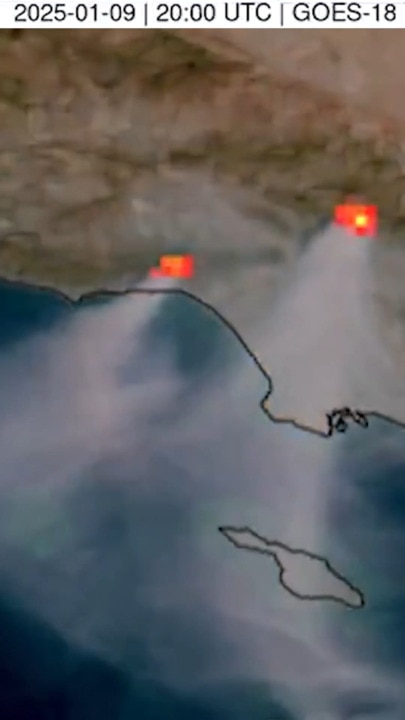
They came to California as tiny seeds packaged in envelopes during the Gold Rush in the early 1850s.
Eucalyptus trees – native to Australia – were seen as an easy solution to a critical shortage of wood brought on by the economic boom.
Opportunistic Aussies “imported and planted them in large numbers,” Greg Moore, a tree ecologist at the University of Melbourne, told news.com.au.
With no natural pests or diseases, the trees thrived in California, but locals were quick to discover they weren’t ideal for producing quality timber.
One wealthy investor opened a mill and planted eight million eucalyptus trees only to abandon the lot after discovering he couldn’t sell the timber.
The Tasmanian blue gum has become so synonymous with the streets of Los Angeles and San Francisco that many Californians are convinced it’s native.
But now, the iconic Aussie tree is at the centre of a contested debate about whether it’s partially to blame for the devastating bushfires ravaging LA.
Driving the theory is the fact that blue gums – in particular their toxic, oil-rich leaves and shedding strands of ribbon-like bark - are highly flammable.
Online, cruel trolls have taunted Americans for getting “duped” into planting highly flammable trees without considering the risks - but experts insist California has far bigger problems than the Aussie trees in their backyard.
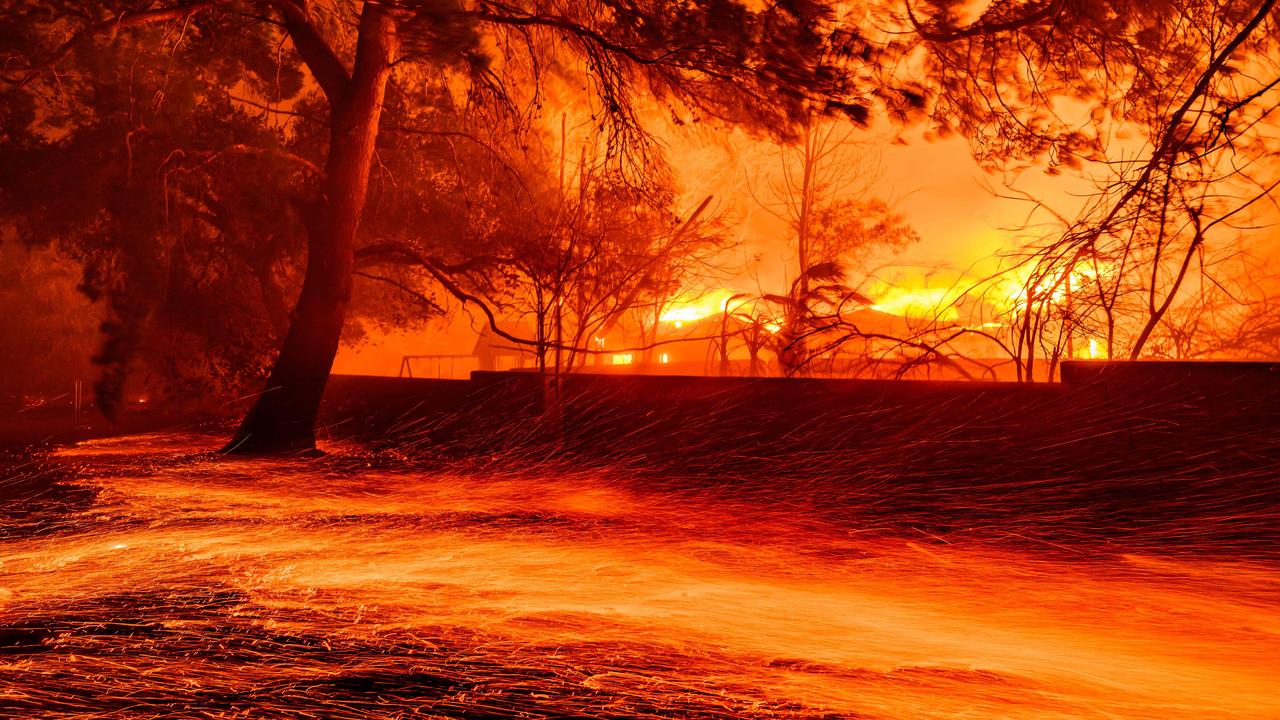

MORE:Celeb homes destroyed in LA fires revealed
While the areas north of LA have always been a ‘high fire risk’, locals and authorities were caught off guard by the rapid spread of last week’s fires, destroying 40,000 acres of land from Pacific Palisades to Malibu.
The widespread devastation in the midst of winter prompted Cal Fires to ‘do away with’ the term ‘fire season’ because it simply is no longer accurate.
“We now refer to it as fire year,” Cal Fire information officer David Acuña said.
Similarly, University of Tasmania professor of of pyrogeography David Bowman told the ABC the catastrophe was a “much bigger story about climate change and unstable climates.”
That doesn’t necessarily rule out the possibility that eucalyptus trees helped to propel the flames.
“Until we see a mapping of what tree was growing where, we won’t really know,” Dr Moore told news.com.au.
“People are speculating, and there may be some validity to that speculation – but I haven’t seen any hard solid evidence.”
Dr Moore said it was true that eucalyptus trees were capable of causing devastation – pointing to the 1991 blaze in San Francisco’s Oakland that left 25 dead.
“The Tassie blue gum is one of a number of species that produce volatile oils,” he explained.
“On hot days, they get a high concentration of oil around them. If you ignite that, you get a flash of fire across the canopy.
“They are quite impressive when they’re part of a fire.”
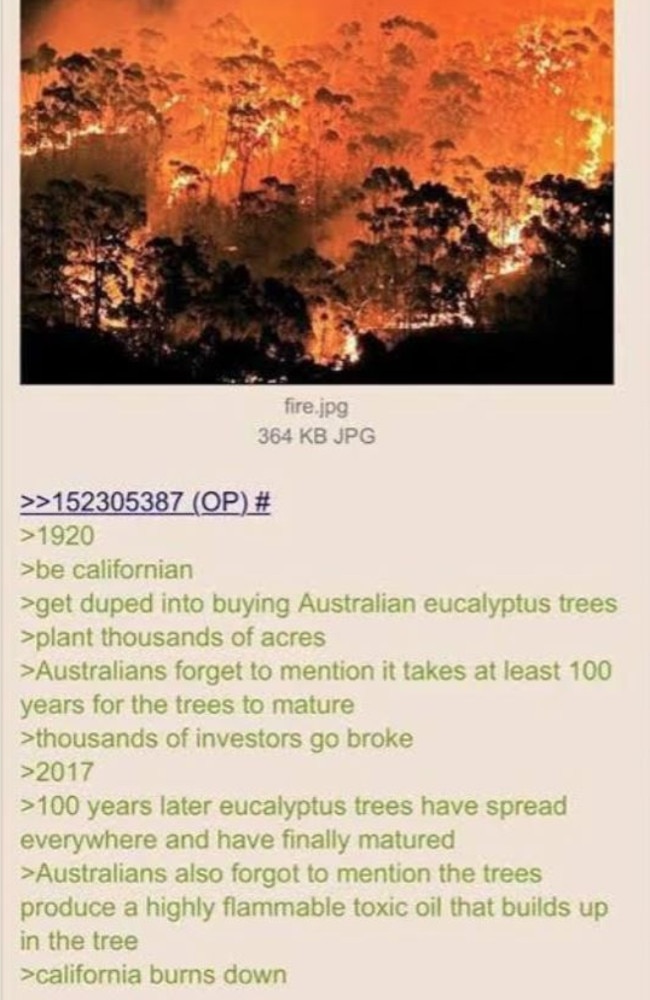
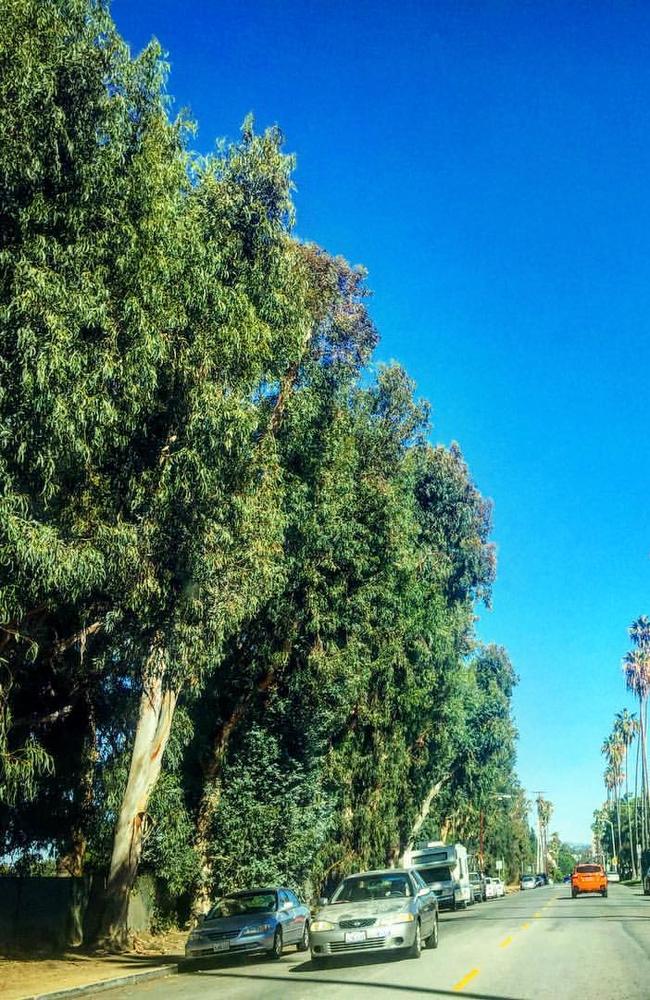
One man who knows eucalyptus trees better than most is Dean Nicolle.
The consultant arborist, botanist and ecologist has a “zoo of trees” with over 950 species of eucalypts at a site he manages outside of Adelaide.
Mr Nicolle also downplayed the influence of eucalyptus trees in the region on the recent bushfires, saying the winter drought and extreme winds were the real factors at play.
“The fires have basically spread through the native vegetation,” he said.
“Anything in the line of where those embers go -and in those high winds, they travel a fair way - if it’s flammable it’s going to burn.
“It doesn’t matter whether it’s vegetation or timber, buildings or plastic … anything that’s in the way catches fire and burns.
“Everything from palm trees to rose bushes in gardens. Any vegetation is flammable if it’s dry enough and the conditions are right.”
Stephanie Pincetl, who heads up the California Centre for Sustainable Communities at the University of California, was more blunt in her analysis.
“Eucalyptus is very flammable but a trivial concern in this fire,” she told news.com.au.
Professor Pincetl said the real blame laid with “urban sprawl” – pointing to a string of recent fires to take place in California at the intersection of woodlands and civilisation.
“We’re still thinking that as humans, we can overpower nature. We’re not that powerful,” Pincetl told CBS News.
“People don’t want to hold suburban sprawl accountable. We are all fairly complicit in this land-use pattern.
“We cannot win over nature.”
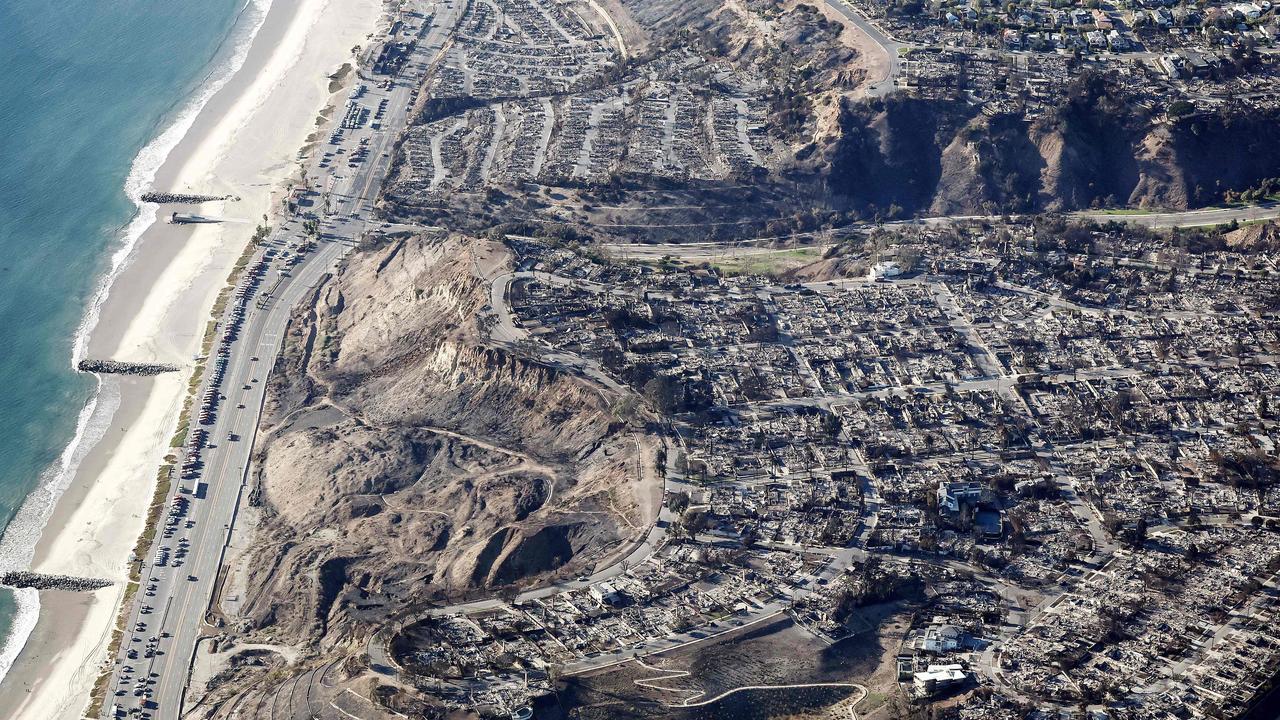
Locals talk about eucalyptus
During a live cross last Wednesday after the initial fires ripped through LA, NBC’s Jacob Soboroff pointed out rows of charred palm and eucalyptus trees.
“This was really a tinderbox ready to go because of how little rain we’ve got,” the journalist, who grew up in the affluent neighbourhood of Pacific Palisades, said.
“When these things go up, it’s like a matchstick,” he added.
“All these trees … the beautiful eucalyptus trees people know… it makes me really sad.”
Softball coach Chris Druckman, 60, was playing tennis with a friend in Pacific Palisades last week when she noticed an eerie change in the weather.
The Aussie native, who has spent 10 years living in LA, told the AFR the haunting wind gusts reminded her of bushfire conditions back home.
“It has never been like this. I said the gum trees around us were turning into widow makers and that we should get out of here,” she told the publication.




